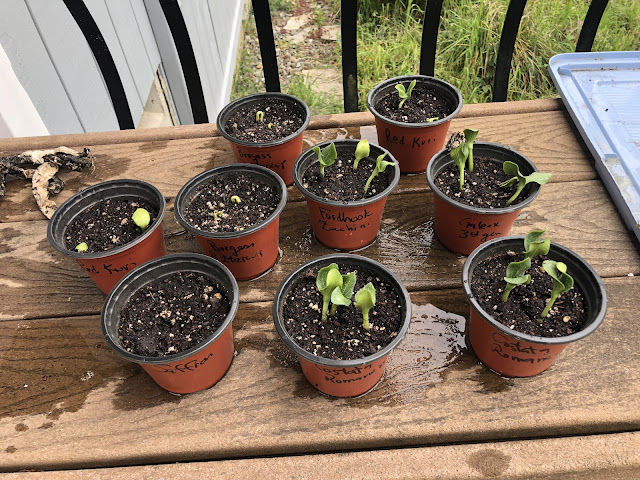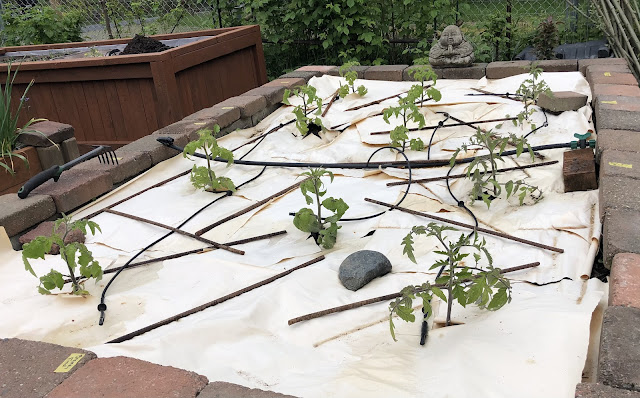I set up the irrigation system for the fresh tomato raised bed. First, I arranged the lines on top of the kraft paper mulch, so I can see if they work. The 1/4 inch lines are re-used from last year. I used new emitters because of concern they could clog from a season build-up of minerals. Plus, some broke when I took apart the lines to build the beds.
Here is a video showing the flow.
Thinking about how much to use. When I use the watering can, one full can is two gallons. I use roughly one full can for four plants, at a time. Depends on how hot and how big they are. That's about 1/2 gal per plant. That would mean let the system run for 30 minutes for a similar amount. The paper mulch will reduce evaporation and soil drying, so I may get away with watering less often. I can always check soil moisture.
After the test run, I shifted the emitters to be under the paper. Now the irrigation system is completed for this bed.
I still need to add paper mulch for the onion bed, then plant sauce tomatoes and install emitters and mulch for that bed. In a couple more weeks, I'll do the same for the chili pepper bed. Also, I'll install a branch for squashes which will be in ground. Last year I watered them by hand, which was a major effort.
It seems like a lot, but the advantages are significant. First, with about 20 tomato plants, at least 1/2 gallon per session, that's about 5 trips with the full watering can per day or every other day. I think it's actually more. For the onions and garlic, or beans when those are done, it's another approx 4 trips per bed, and 4 more for the large planter box. So that's roughly 25 watering can trips per watering session. Or the hose, which is a lot of difficult lugging the hose around and standing out in the heat (or smoke, if we get a bad fire season. Hope not.). It's also a major water savings over using a sprinkler system.







